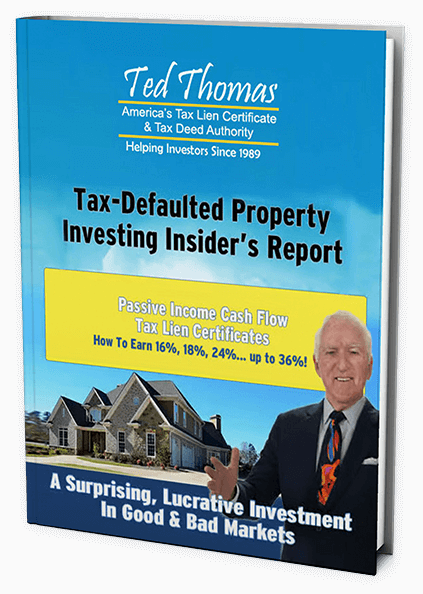Tax sale overages occur when a tax-delinquent property is sold at a tax sale for more than the amount owed in property taxes and fees. These surplus funds, also known as excess proceeds, are initially held for the former homeowner to claim. But there’s a catch: if you don’t claim these funds in time, they are collected by the government entity responsible for the sale, typically the county. Since the county is rewarded for unclaimed tax sale overages, they are usually unmotivated to inform the former homeowner of the excess. As such, investors have made it their duty to find and assist recipients in claiming their overages. For a fee, of course.
Claimants might be the original property owners, heirs, or tax lien certificate holders. Each state has its own laws and timelines governing the recovery of tax sale overages, so it’s important to research and comply with local regulations, especially if you’re looking to claim your overages or become a surplus recovery agent.
Key Takeaways
- Tax sale overages arise when a property is auctioned for more than the amount due in back taxes, penalties, and fees.
- The excess funds are typically owed to the former homeowner.
- The claiming process varies by state, but the first step is always to check your county’s tax sale overage list to determine your entitlement.
- Lack of awareness is a significant barrier preventing the previous homeowners from claiming the surplus funds.
- Investors can make money with tax sale overages by notifying and assisting previous homeowners in claiming these funds, often earning a finder’s fee for their services.

What Are Tax Sale Overages?
When a property with delinquent taxes is foreclosed and sold at an auction, it might fetch a higher price than the total amount due in property taxes, penalties, and fees. This extra money is referred to as tax sale overages or excess proceeds. Depending on the state, these funds usually belong to the former property owner and can be claimed after the tax sale. Here’s an overview and an example to make it easier to understand tax sale overages:- Sale Price: The amount a property sells for at a tax sale auction.
- Owed Amount: Sum of unpaid taxes, penalties, and interest.
- Overage: The difference when the Sale Price exceeds the Owed Amount.
- Property’s Auction Sale Price: $50,000
- Total Taxes, Penalties, and Interest Owed: $30,000
- Tax Sale Overage: $20,000
How Do Tax Sale Overages Occur?
Tax sale overages occur through a series of steps, beginning with homeowners failing to pay property taxes and culminating in surplus funds generated from auction sales exceeding the taxes owed. Now, onto the detailed steps:
1. Homeowner Fails to Pay Property Taxes
If you, as a homeowner, have not paid your property taxes for a long time, your property will become tax delinquent. This debt accrues over time and can include penalties, interest, and other costs associated with the delinquency.
2. The County Forecloses the Tax Delinquent Property
The county can then foreclose on the tax-delinquent property. This legal action may strip the property owner of their ownership rights.
3. The County Auctions the Property via Tax Sales
The next step is for the county to auction off the foreclosed property. The proceeds from tax sale auction will be used to pay for your property back taxes.
4. The Winning Bid Exceeds the Property Taxes Owed
Surplus funds are then generated when the winning bid amounts to more than the taxes, penalties, and fees owed on the property.
5. The Surplus Amount is the Tax Sale Overage
This surplus amount is known as the tax sale overage. You may claim the leftover amount from the sale depending on the state or county.
How to Claim Tax Sale Overages?
Since the procedure and laws vary by state, here are the general steps that you can follow:
Step 1: Check the Tax Sale Overage List
Identify if there are surplus funds that you’re entitled to by checking the county’s tax sale overage list. Many counties publish a list of excess proceeds from property tax sales online. If you can’t find it online, a friendly call to your county treasurer or tax collector’s office should point you in the right direction.
On the list, look for properties that match yours (address, parcel number) and see if the sale resulted in surplus funds. Ensure that the claim period hasn’t closed – you’ll usually find this information on the overage list.
Step 2: Gather the Requirements
Once you’ve identified a potential claim, start preparing the documentation. The exact requirements will vary by county, but common items include:
- Proof of Ownership: This could be a copy of your deed, title, or closing documents for the property in question.
- Photo ID: A government-issued ID to verify your identity.
- Claim Form: Some counties have downloadable claim forms on their websites, while others may require a paper form from their office.
Step 3: Submitting Your Claim
- Forms: Complete the claim form meticulously, ensuring all information is accurate and matches the property and overage details. Don’t hesitate to contact the county office if anything seems unclear.
- Submission: Some counties allow online claim submission, while others require mailing or in-person filing. Double-check the preferred method to avoid delays.
Remember: These are general steps; specific procedures can differ by county. Always consult your county’s tax office for the most up-to-date and accurate information on claiming tax sale overages in your area.
Common Challenges in Claiming Tax Sale Overages
- Lack of Awareness: Counties are only required to send you a notification to your listed address, which is the one they sold. The previous homeowner is likely not to live there anymore. As such, most homeowners are unaware that they are eligible to claim what can sometimes be a huge sum.
- Missing the Deadline: The overage lists usually have a time limit for claiming your funds. If you miss that window, the money will be escheated to the county.
- Government Delays: County offices get backed up, so processing times can vary. Be prepared to wait, but be bold and follow up politely to check the status of your claim, especially if it takes longer than expected.
- Other Liens: Depending on your state, other parties might claim the surplus funds due to outstanding liens like mortgages or mechanic’s lien. Be prepared to work with the county to sort things out.
How to Make Money with Tax Sale Overages
The money comes through collaboration with the previous owner. If an auction results in a surplus, the original homeowner is typically entitled to this overage. Here’s where you come in:- Check the tax sale overage list.
- Track down previous homeowners with significant overages.
- Inform them of the overage and that you could help them claim it.
- Negotiate a finder’s fee and facilitate their claim.
Important Considerations for Overage Investors
Understanding the nuances of overage investing is crucial for maximizing returns. Considerations such as state-specific laws on homeowner rights and claim period deadlines vary significantly, impacting potential profits and strategies. Now, onto the key considerations:
Not all States Allow the Previous Homeowner to Claim Overages
Some states do not grant previous homeowners the right to claim overages from tax sales. Before investing, it’s essential to understand the specific state’s laws. For example, only the tax lien certificate holder can claim the overage in Alabama. Meanwhile, counties in New York and Michigan state currently get to keep the excess funds.
Claim Period Deadline Varies by State
The time frame within which you must claim tax sale overages is not uniform across states. In Hall County, Georgia, “a minimum of [only] 60 days is provided for claimants to file when multiple potential claimants are known.” Note that the minimum is only guaranteed for cases with multiple claimants. On the other hand, Arkansas will hold your excess proceeds for two years before they escheat to the county where the property was located.
Frequently Asked Questions
What are tax sale overages, and how can they result in profit?
Tax sale overages occur when a tax-foreclosed property is sold at auction for a higher price than the owed taxes. The surplus funds, also called overages, are the difference between the sale price and the taxes due. This surplus is generally returned to the original homeowner. If unclaimed, you, as an investor, can help find and claim these surplus funds for the former homeowner for a fee.
Where can I find a list of excess funds from tax sales?
A list of excess funds from tax sales, known as a tax overage list, can often be obtained from the county website. Look up “tax sale overages [ _____ ]”. Simply insert your state or county in the blank.
How does one start a business that specializes in recovering tax sale overages?
Starting a business that focuses on recovering tax sale overages typically requires you to locate the original homeowners or their heirs, inform them of the unclaimed overage, and aid them in the recovery process.
Conclusion
Understanding tax sale overages offers many opportunities. Awareness of the potential tax sale overage claim can sometimes be challenging for homeowners and heirs. Investors may then step in and help the claimant navigate the complexities of state laws and claim processes effectively.
As always, consultation with legal professionals and diligent research into local regulations will ensure that efforts to claim or assist in claiming tax sale overages are successful and compliant with legal standards.
If you’d like to know more about tax-defaulted real estate investing, Ted Thomas provides full support and complete training with home study courses, Q&A webinars, live tutorials, workshops, web classes, personal coaching with certified coaches, and an interactive map and auction calendar research tool that allows you to visit each county online to find the details about upcoming auctions.
Start your money-making journey by attending Ted’s 7-Hour foundational training. Book your seat today to attend the Retire Rich From Home Virtual Workshop.
Want to earn massive income from bargain real estate investing? Would you like to buy mortgage-free properties for pennies on the dollar? Or earn double-digit interest rates secured by real estate? Then get started today by clicking the button below and get your FREE Insiders Report.




